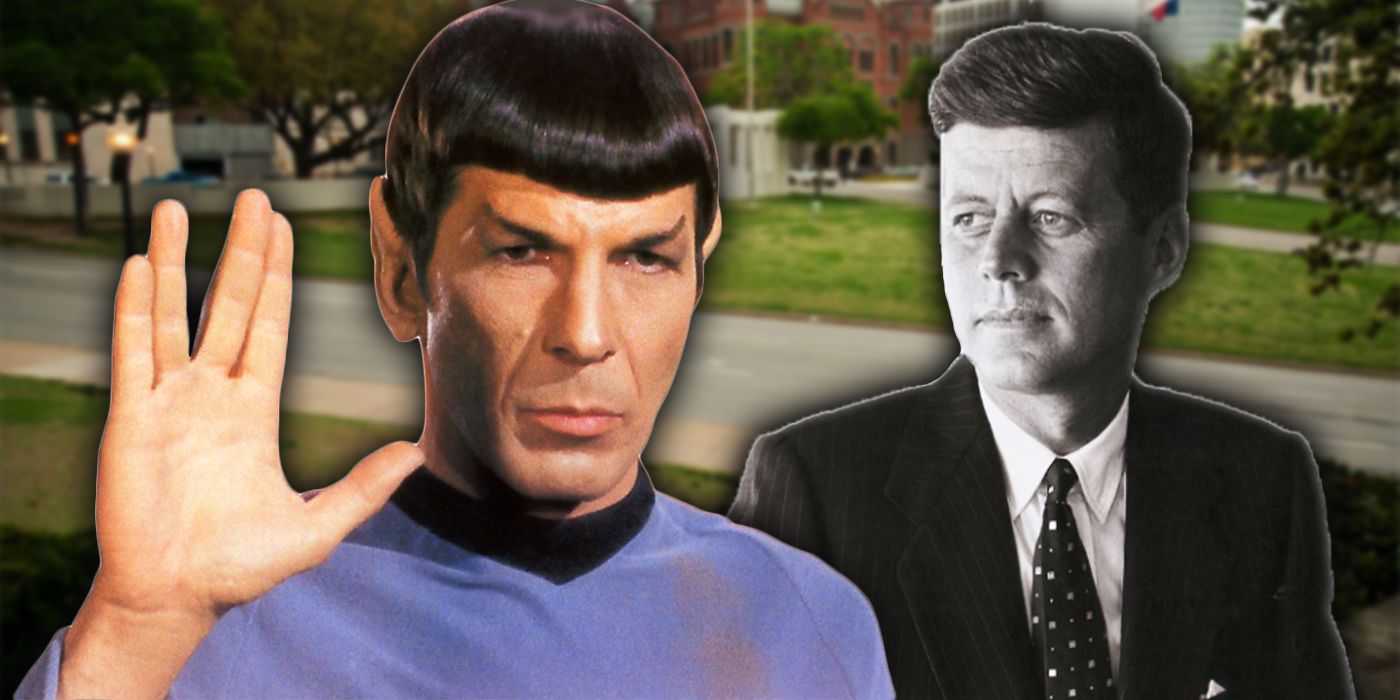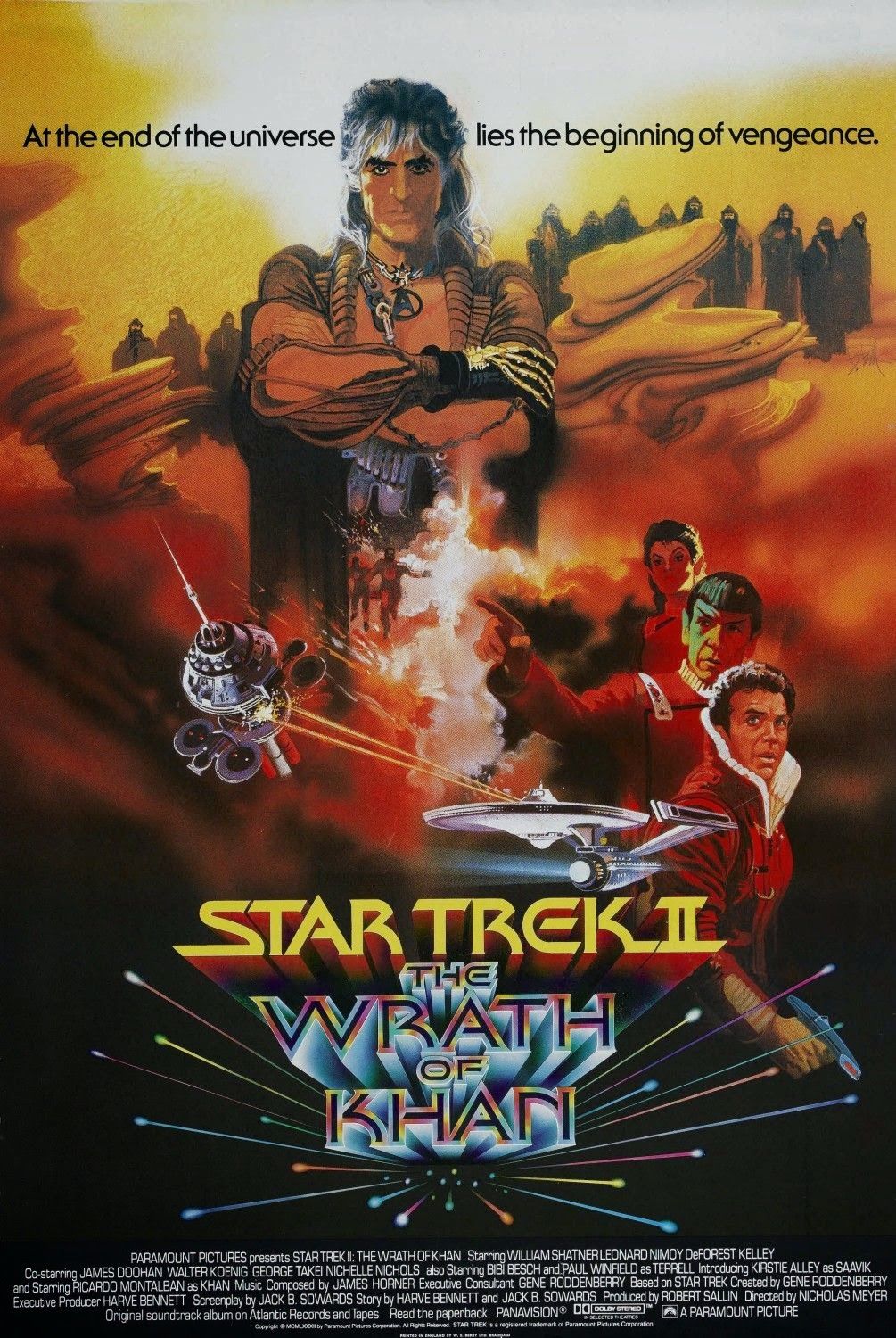MOVIE URBAN LEGEND: Gene Roddenberry tried to get the plot of a number of Star Trek films to be about the Enterprise traveling back in time to keep the Klingons from stopping the assassination of John F. Kennedy.
Recently, a friend of mine complained about the upcoming season of Star Trek: Picard was going to involve time travel and they noted that they were sick of Star Trek going back to the time travel well, as it were. I am not saying that that is a wrong take or anything like that, but at the same time, it seems really difficult to separate Star Trek from time travel, as it has regularly been one of the most popular plots of the franchise. Interestingly, the popularity of time travel led to Star Trek creator Gene Roddenberry continually trying to get Star Trek films to use a plot that involved going back in time to keep the Klingons from preventing the assassination of John F. Kennedy.
WHEN DID GENE RODDENBERRY FIRST COME UP WITH THIS IDEA FOR A STAR TREK FILM ABOUT THE JFK ASSASSINATION
Star Trek: The Motion Picture wasn't a flop, by any stretch of the imagination, but it is fair to say that Paramount Studios believed that the film could have been a WHOLE lot more profitable than it was, as it cost a shocking (for the era) $44 million (the sequel, Star Trek II: The Wrath of Khan, was produced for roughly a THIRD of the budget of the first film). Paramount generally blamed Roddenberry for the high budget (due to his many rewrites) and relatively disappointing box office returns (they felt that Roddenberry didn't put enough action into the film. Again, though, the film obviously made enough money for the studio to want to make another sequel). Roddenberry, though, naturally felt that he was going to be responsible for the next film in the series. His first treatment was oddly called Star Trek III, as Roddenberry felt that the first film was really a sequel to the original TV series.
Roddenberry was aware of the criticisms of the first film and so he planned to go out of his way to get this film to be as popular as possible, by working in many of the popular elements of the original series, namely the Klingons, the Guardian of Forever (from "The City on the Edge of Forever") and, of course, the time travel element from that classic episode. So the idea was that the Klingons used the Guardian of Forever to go back in time and prevent the Kennedy assassination which, for whatever reason, led to the Federation never existing. Since the Enterprise was in warp drive during the change to the timestream, they were unaffected and able to go back in time themselves to fix the timeline.
In her book, Inside Trek: My Secret Life with Star Trek Creator Gene Roddenberry, Roddenberry's executive assistant Susan Sackett wrote about the treatment, ""This wasn't as hokey as it may sound. There were sensitive moments, even tender scenes with well-developed characters and well thought out science-fiction concepts. Having given the story his all, Gene optimistically awaited a 'go' from Paramount to begin writing the screenplay."
WHY DIDN'T RODDENBERRY'S JFK STAR TREK FILM GET MADE?
However, not only was the film idea rejected, but Roddenberry was then "promoted" to Executive Consultant and producer Harve Bennett was brought in to take the reins of the the next Star Trek sequel. Sackett wrote, "What bothered Gene the most was that they didn't give any tangible reasons for the rejection. 'I think they didn't like time travel, 'which is odd, considering that years later their most successful movie was a time travel story.'"
Even after Roddenberry was pushed out, he tried to get Bennett to agree to use the Kennedy storyline for the film, but Bennett was not interested in the idea.
Muppet Christmas Carol: How Britain’s Tax Rules Led to Michael Caine’s Starring Role
DID RODDENBERRY GIVE UP ON HIS JFK STAR TREK IDEA?
Interestingly, even after Wrath of Khan came out and was a hit (although, amusingly, it made less money than the first film, but since the budget was smaller, Paramount was happier with the results), Roddenberry pushed Bennett to have the NEXT sequel use the Kennedy plotline. Bennett recalled in Star Trek Movie Memories, "Throughout my tenure on Star Trek, that story came up four times as a substitute for whatever we were planning. Star Trek II, III, IV, V, it didn't matter."
By the time time, the plot had apparently been altered and while the Enterprise set the timeline right the first time without any direct action, this time around, Spock might have had to take a more active hand in things. According to Trekmovie.com, "Eddie Egan, the unit publicist on Star Trek II: The Wrath of Khan, stated that there was a revision that made the events of Roddenberry’s Star Trek II similar to the classic Original Series episode “The City on the Edge of Forever.” In order for history to be restored, Kennedy had to die. In this version, Spock appeared behind a fence and fired the fatal gunshot that assassinated JFK. This proposal reportedly horrified Paramount."
There were plenty of rumors in Star Trek fandom back in the day about that plot detail and people were pretty hilariously angered by the idea. Of course, it didn't happen because the film itself never happened, but I also bet that if they HAD gone the route of the JFK plot, it would have never made it into the final screenplay.
Anyhow, as to the general legend, it is...
STATUS: True
Thanks to Memory Alpha's Star Trek III section for the amazing quotes.
Be sure to check out my archive of Movie Legends Revealed for more urban legends about the world of film. Click here for more legends specifically about Star Trek.
Feel free (heck, I implore you!) to write in with your suggestions for future installments! My e-mail address is bcronin@legendsrevealed.com.


